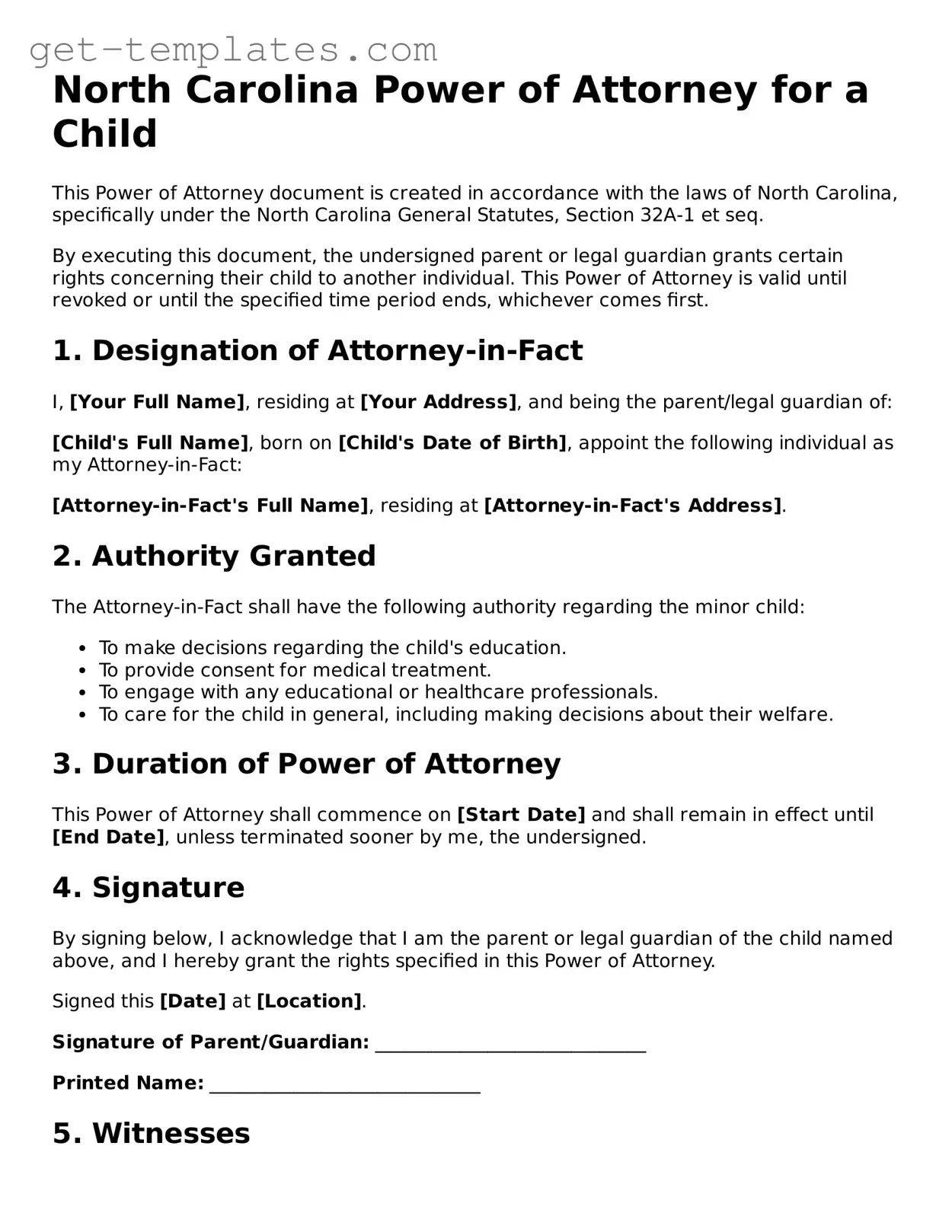Attorney-Approved Power of Attorney for a Child Document for North Carolina
The North Carolina Power of Attorney for a Child form is a legal document that allows a parent or guardian to delegate certain parental rights and responsibilities to another adult. This arrangement can be particularly useful in situations where the parent is temporarily unable to care for the child, such as during travel or medical emergencies. Understanding the nuances of this form can help ensure that a child's needs are met effectively and legally.
Get Document Online

Attorney-Approved Power of Attorney for a Child Document for North Carolina
Get Document Online
You’re halfway through — finish the form
Finish Power of Attorney for a Child online — edit, save, download made easy.
Get Document Online
or
⇓ PDF Form
